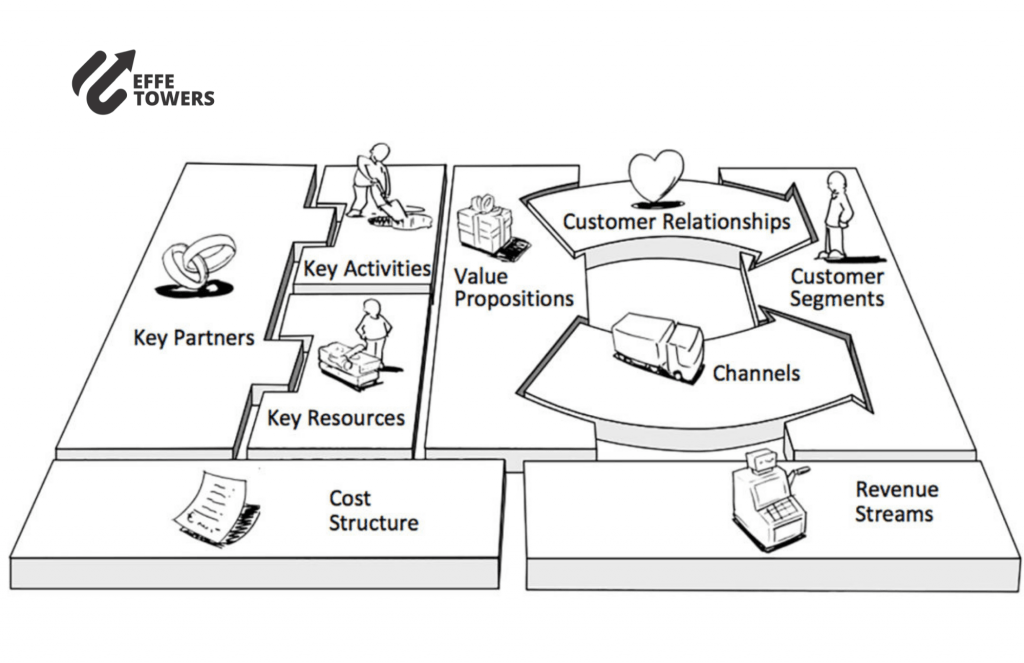One common mistake many founders and entrepreneurs make is one of not knowing enough about starting and owning a business, or about the particular business they are going into.
Contrary to popular belief, running a successful business goes far beyond just being passionate about the business you intend to start. Rather, there are concepts every entrepreneur should acquire before starting up a business venture. In this article, I title them the 7 business secrets every entrepreneur must know before starting a business.
The 7 Business Secrets Every Entrepreneur Must Know Before Starting a Business
Although not so much of a secret to some especially seasoned entrepreneurs and business owners, for many first-time entrepreneurs and startup founders, these are key information they lack which in many cases cause them either time, resources, money, or ultimately their business. I consider them business secrets as not so many people who get into business know about them.
Here are the seven business secrets required to build a successful and sustainable business.
- Build a Solution and Not a Product or Feature
So, you’ve got this great idea you believe will revolutionize the world as we know it, or say, you have this talent/skillset/hobby you’re crazily passionate about and know you will be very good at. Therefore, you decide to invest a ton of money into turning it into a business without conducting your due diligence. This might just be a recipe for failure.
Although very basic, one mistake many first-time entrepreneurs make is that they spend their time and money building a killer, world revolutionizing, life-changing product, feature, and service without building a solution to a problem.
Why should I build a solution rather than a product you may ask? The answer is simple, people buy solutions to different pain points they experience and not a certain product in itself. For example, people don’t use the Uber or Bolt mobile app because they just want to, they use it because it solves their problem of the inconvenience of getting rides.
To avoid being a part of the abysmal statistics of failed business yearly, you don’t go starting a business just because you had a hunch, an idea, or a very interesting skillset. Before starting a business, make sure you are creating a solution that is solving the pain points of a group of people (a market), and you want to address a large enough market because the larger the market, the larger the demand for your solution, and the bigger your business will grow.
2. Build a Value Proposition
Building a successful business doesn’t end with just building a solution to a problem. You see, the business world is a very competitive one and for you to operate successfully, you have to learn how to position your business to deliver value more than the direct or indirect competition. To achieve this you need a value proposition, what some call a Unique Selling Proposition (USP).
Simply defined, your value proposition is the reason why a customer will buy from you rather than from the competition.
Designing a value proposition requires a proper understanding of the pain points of the target customers, this will give you an idea of what they need. A great tool for designing a value proposition is the Value Proposition Canvas. Learn more about the Value Proposition Canvas.
3. Design a Business Model
No matter how needed your business solution tends to be or becomes, and no matter how valuable you become compared to the competition, your business will fail if your business model isn’t viable.
A business model is a description of how a business profitably creates, delivers, and captures value for both itself and its customers. It is the core of an organization’s business strategy, and it answers these three fundamental but profound questions for your business.
- What does it take to solve this problem? This question addresses the value proposition, raw materials, manufacturing, labour, and so on.
- How do we sell this solution/value proposition? This question addresses the areas of marketing, distribution, delivering of the service, and processing the sale.
- How do we get people to pay for the solution/value proposition? This question addresses the pricing strategy, payment methods, payment timing, etcetera of the business.
A great tool for business modeling is the Business Model Canvas (BMC). The BMC comprises 9 blocks that explain how value is created, delivered, and captured for a business. Learn more about the Business Model Canvas.

Free Download
Free Modelling Tool:
Download and design your business model and value proposition using Business Model Canvas (BMC) and the Value Proposition Canvas.
4. Engage with Customers
This is arguably one of the most important activities every entrepreneur must undertake before starting a business and routinely as the business advances. As an entrepreneur, engaging with your target audience, and prospective customers will save you a lot of time, resources, and money. You get to know first-hand what they desire, and not just build what you feel they want and have nobody buy from you. To do this, you have to carry out surveys, hold user interviews, ask for feedback, etc.
There are different tools like Survey Monkey, Type Form, Google form, etc. for carrying out online user surveys. For user interviews, you can hold focus groups, one-on-one interviews, etc. just to get real feedback from your target market.
But in trying to get insight from users, it is advisable to work with professionals in User Experience (UX) research. This is important because the only thing worse than no data, is bad data, and what bad data does to you is that it gives false negatives (thinking the idea is dead when it’s not) and—more dangerously—false
positives (convincing yourself you’re right when you’re not) leading to the investment of time and money in a venture destined to fail.
5. Manage Your Finances
Managing your finance in this sense goes beyond understanding how to keep a cash book or other accounting books. As a business owner, the first step to managing the finances of your business is to understand how to create a working revenue model and pricing system that is acceptable to your customers, and profitable for your business. After achieving this, you want to make sure your cost is not greater than your revenue, lest the business collapses.
6. Leverage Partnerships
One mistake many business owners make is the fallacy that they don’t need anyone but themselves to build and grow their business. While this might be true, it only leaves you on a long and very stressful journey. All very big and successful businesses leverage the concept of a strategic partnership to grow their business and build their brands. For example, if you operate a cloth-making business, you could have strategic partnerships with certain fashion houses and boutiques that can have exclusive distribution of your clothes. So instead of bearing the burden of marketing those clothes to your limited audience, you’ll get wider visibility and increased patronage partnering with those fashion houses.
7. Take Calculated Risks
Contrary to the popular definition of an entrepreneur by many authors and articles, an entrepreneur isn’t just one who starts a business and takes risks to make a profit. Rather, an entrepreneur is an individual who starts a business and takes calculated risks to make a profit. Good entrepreneurs weigh their options before making decisions and taking risks.
There are a lot of things (business secrets) every first-time entrepreneur, founder, and business owner should know before starting a business, but these seven are most important.
In summary, before starting any business, you want to make sure the business is addressing and solving a problem, make sure there is a large enough market for the problem. You also want to position your business to deliver value to the market and ensure you have a viable business model that delivers value to you too. Finally, you want to take calculated risks, leverage strategic partnerships, and ensure you have a viable and workable revenue model and financial structure.

Free Download
Free Modelling Tool:
Download and design your business model and value proposition using Business Model Canvas (BMC) and the Value Proposition Canvas.



